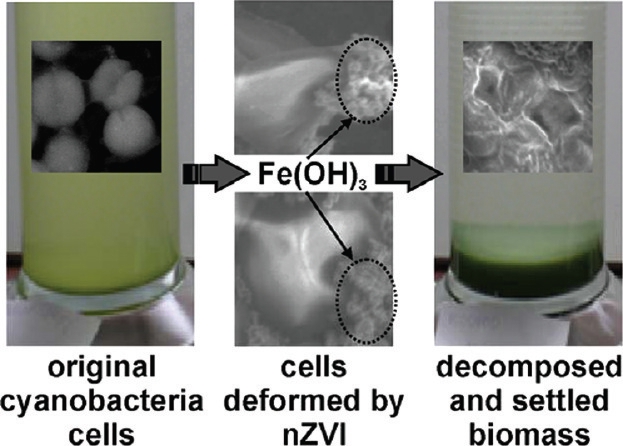Pracovníci RCPTM navrhli novou unikátní technologii využívající nanočástice nulamocného železa pro likvidaci sinic
The cyanobacteria are currently being considered as one of major threats to water resource worldwide. There has been a lot of effort devoted to cope with this problem proposing various technologies being effective, cheap and ecologically friendly to the ecosystem. Recently, a novel method meeting all the above-mentioned requirements has been proposed by the researchers of RCPTM and published in the Environmental Science and Technology journal (see Marsalek et al., Environ. Sci. Technol. 2012, 46, 2316-2323). This technology employs nanoscale zerovalent iron (nZVI), which has been identified as a potentially useful multipronged weapon for use against cyanobacterial water blooms. It has been shown that the treatment with nanoparticles of zerovalent iron is an effective and environmentally benign method for destroying and preventing the formation of cyanobacterial water blooms. The nanoparticles have multiple modes of action, including the removal of bioavailable phosphorus, the destruction of cyanobacterial cells, and the immobilization of microcystins, preventing their release into the water column. Ecotoxicological experiments showed that nZVI is a highly selective agent, being nontoxic to other biological water species including algae, daphnids, water plants and fishes. The primary product of nZVI treatment is nontoxic and highly aggregated Fe(OH)3 compound which helps promote flocculation and gradual settling of the decomposed cyanobacterial biomass.



